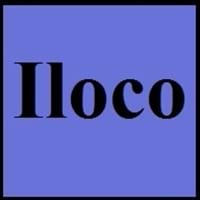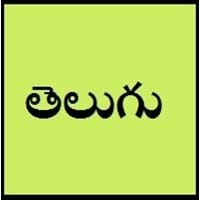Countries
Philippines
Andra Pradesh, India, Telangana, Yanam
National Language
Philippines
Andra Pradesh, India
Second Language
Not spoken in any of the countries
Karnataka
Speaking Continents
Asia
Asia
Minority Language
Not spoken in any of the countries
Andaman and Nicobar Islands, Chhattisgarh, Karnataka, Maharashtra, Odisha, Puducherry, Tamil Nadu
Regulated By
Commission on the Filipino Language
Telugu Academy and Official Language Commission of Government of Andhra Pradesh
Interesting Facts
- Ilocano was originally written with Baybayin syllabary, then gradually it was replaced by Latin alphabet.
- Northwest Luzon is the original Ilocano homeland.
- Telugu is the only language in the Eastern world that has every single word that ends with a vowel sound. Telugu language is called "Italian of the East".
- Telugu is one of the oldest language in India which is 2,400 years old.
Similar To
Tagalog, Indonesian and Malaysian Languages
Tamil
Derived From
Not Available
Sanskrit Language
Alphabets in
Ilocano-Alphabets.jpg#200
Telugu-Alphabets.jpg#200
Scripts
Ilokano Braille, Latin
Telugu Script
Writing Direction
Not Available
Left-To-Right, Horizontal
Time Taken to Learn
Not Available
Thank You
Agyamanak
ధన్యవాదాలు (Dhan'yavādālu)
How Are You?
Kumusta?
నువ్వు ఎలా ఉన్నావు? (Nuvvu elā unnāvu?)
Good Night
Naimbag a rabii
శుభ రాత్రి (Śubha rātri)
Good Evening
Naimbag a sardam
శుభ సాయంత్రం (Śubha sāyantraṁ)
Good Afternoon
Naimbag a malem
శుభ మద్యాహ్నం (Śubha madyāhnaṁ)
Good Morning
Naimbag a bigat
శుభోదయం (Śubhōdayaṁ)
Please
Not available
దయచేసి (Dayacēsi)
Sorry
Agpakawanak
క్షమించాలి (Kṣamin̄cāli)
I Love You
Ayayatenka
నేను నిన్ను ప్రేమిస్తున్నాను (Nēnu ninnu prēmistunnānu)
Excuse Me
Maawan-dayawen
క్షమించండి (Kṣamin̄caṇḍi)
Dialect 1
Balangao
Waddar
Where They Speak
Philippines
Andra Pradesh, Karnataka, Maharashtra
Where They Speak
Philippines
Andra Pradesh, Karnataka, Orissa
Dialect 3
Not present
Manna-Dora
Where They Speak
Not present
Andra Pradesh, Tamil Nadu
How Many People Speak
Not Available
Second Language Speakers
Not Available
Native Name
ilokano
తెలుగు (telugu)
Alternative Names
Ilokano, Iloko
Andhra, Gentoo, Tailangi, Telangire, Telegu, Telgi, Tengu, Terangi, Tolangan
French Name
ilocano
télougou
German Name
Ilokano-Sprache
Telugu-Sprache
Pronunciation
Not Available
Not Available
Ethnicity
Ilocano people
Telugu people
Origin
18th Century
c. 575
Language Family
Austronesian Family
Dravidian Family
Subgroup
Not Available
Not Available
Branch
Not Available
Not Available
Early Forms
No early forms
Early Telugu epigraphy
Standard Forms
Modern Ilocano
Telugu
Signed Forms
Not Available
Not Available
Scope
Individual
Individual
ISO 639 1
No data available
te
ISO 639 6
Not Available
Not Available
Glottocode
ilok1237
telu1262
Linguasphere
31-CBA-a
No data available
Language Type
Living
Living
Language Linguistic Typology
Not Available
Subject-Object-Verb
Language Morphological Typology
Not Available
Not Available
All Ilocano and Telugu Dialects
Most languages have dialects where each dialect differ from other dialect with respect to grammar and vocabulary. Here you will get to know all Ilocano and Telugu dialects. Various dialects of Ilocano and Telugu language differ in their pronunciations and words. Dialects of Ilocano are spoken in different Ilocano Speaking Countries whereas Telugu Dialects are spoken in different Telugu speaking countries. Also the number of people speaking Ilocano vs Telugu Dialects varies from few thousands to many millions. Some of the Ilocano dialects include: Balangao, Bontoc. Telugu dialects include: Waddar , Chenchu. Also learn about dialects in South American Languages and North American Languages.
Ilocano and Telugu Speaking population
Ilocano and Telugu speaking population is one of the factors based on which Ilocano and Telugu languages can be compared. The total count of Ilocano and Telugu Speaking population in percentage is also given. The percentage of people speaking Ilocano language is 0.14 % whereas the percentage of people speaking Telugu language is 1.15 %. When we compare the speaking population of any two languages we get to know which of two languages is more popular. Find more details about how many people speak Ilocano and Telugu on Ilocano vs Telugu where you will get native speakers, speaking population in percentage and native names.
Ilocano and Telugu Language Codes
Ilocano and Telugu language codes are used in those applications where using language names are tedious. Ilocano and Telugu Language Codes include all the international language codes, glottocodes and linguasphere.





